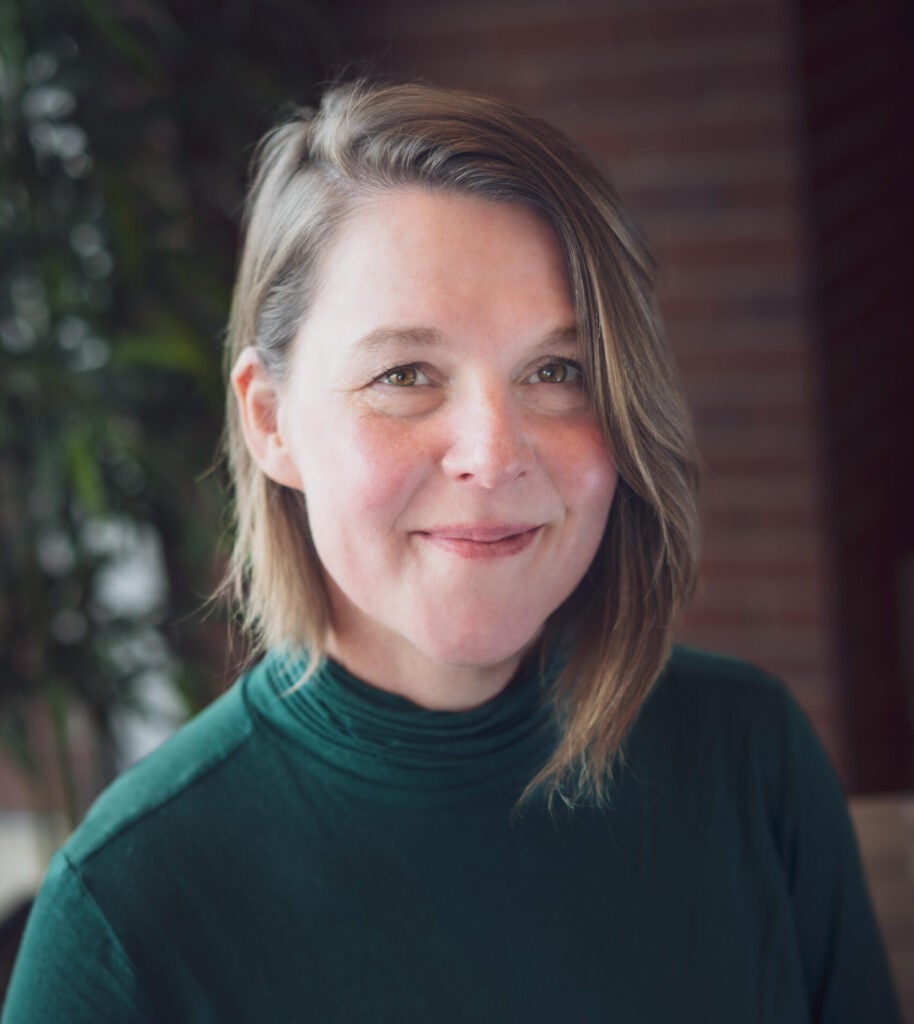
What difference does an international border make?
Libby Lunstrum is interested in borders. Specifically, international borders, the militarization of them, and the green violence and wildlife crime that often crosses them.
Lunstrum’s interest in international borders goes back to research she has done for over a decade in Southern Africa on the subject of cross-border rhino poaching. While studying the issue “that transformed everything” in the conservation community, Lunstrum worked in the Republic of South Africa and Mozambique, where an international border goes through a protected wilderness area. The wildlife crime and border militarization found in this area illustrate the problems that Global Studies students will be tasked with trying to solve: issues of inequality, lack of economic opportunity and relationships between communities and their governments.
Lunstrum brings her knowledge to students in the School of Public Service’s Global Studies program through courses such as her Seminar in Contemporary Global Issues known as “The End of the Earth as We Know It.” An interdisciplinary course, students learn about major global and environmental challenges such as climate change, biodiversity loss, urbanization, and deforestation. The course looks at these important issues through natural science, public policy and humanities lenses.
Global Studies is interested in how the world is globally connected, in both positive and negative ways. But why should students in Idaho consider it as a field of study? “Global Studies prepares students for the increasing number of careers that have a global component,” said Lunstrum. “And it helps them understand their own role in the world as travelers, as citizens and especially as consumers.”
While the majority of her research is centered around Africa, Lunstrum is also researching a contemporary issue here in the Mountain West. The Blackfeet Nation has been working to reintroduce free-roaming bison to a proposed protected area in traditional Blackfoot territory bisected by the U.S./Canada border. Given the importance of bison in Blackfeet culture, this project is both a conservation effort and a cultural revitalization effort. This Blackfeet-led initiative is also an example of efforts to make conservation more inclusive of local communities.
Although Idaho may seem like a strange place for someone who is primarily an Africanist, Lunstrum feels that Boise State is an exciting place to continue her research. “Boise State is a very exciting place to be right now,” she said. “It’s been on the path toward being a research-intensive university that people are really excited about. More specifically for me, I think my research on environmental issues, especially around international borders, really compliments what other people are doing in the School of Public Service. So there are a lot of opportunities to collaborate.”
Lunstrum was born in Boise and has maintained her connection to Idaho throughout her academic career. “I still feel a really dep connection to this place. And I think, especially as a geographer, that’s really important,” said Lunstrum. “When we think about the big challenges we face, especially around things like climate change and biodiversity loss, it’s through a sense of connections to place and belonging to a place that we’re going to solve these problems.”